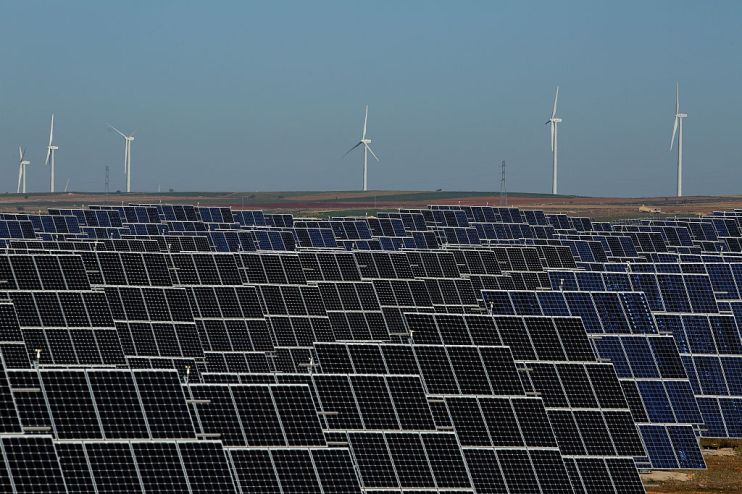Green energy: Subsidies need planning reform to stop firms being lured by US billions – Wartsila boss

Subsidies for green energy investments need to be matched with planning reforms or companies will migrate to the US, the boss of a leading renewables company has warned.
Hakan Agnevall, chief executive of Finnish energy technology specialist Wartsila, told City A.M. that the European Union needed to make sure restrictive planning rules were rewritten to make the most of any response package it unveils following the US Inflation Reduction Act.
He said: “If you really look at accelerating the energy transition in Europe, we all know that one of the major factors that is holding us back right now is permitting.
“This is on a national level, but the EU is also taking measures and steps to try to find processes that can speed up the permitting side of projects. I think this is a key lever for the EU to excel, when it comes to wind farms and solar panels.”
The EU is scrambling to respond to the US Inflation Reduction Act, which was unveiled last August and includes $391bn (£324bn) of committed spending on green energy – making it the largest piece of federal legislation ever to address climate change.
The bloc’s executive arm is now reportedly considering loosening state aid rules, and redirecting some of its $800bn Covid-19 recovery fund to persuade European companies not to move Stateside with future projects.
However, it is seemingly not preparing to build on planning pledges in its REPowerEU strategy unveiled last year – which details its pathway from Russian fossil fuels to a low-carbon energy network across the continent.
Last October, as part of the plans, the EU Commission called for a fast-tracking of permitting procedures to accelerate the rollout of renewables across the bloc– however this has yet to be approved.
Meanwhile German Economy Minister Robert Habeck and French Finance Minister Bruno Le Maire will hold talks with US Treasury Secretary Janet Yellen tomorrow to resolve concerns over a loss of green energy investment in Europe.
Wonks raise issues over green energy subsidies
Multiple fast-growing renewable companies such as Zenobe and Sunfire told City A.M. last month they are considering pivoting to the US to make the most of the subsidy environment.
Agnevall warned the EU also needed to be “extremely careful” it did not craft legislation that “torpedoed free market principles within Europe” – with subsidies typically favouring larger companies and economies.
“Any stimulus that should be at an EU level and not a national level,” he explained.
This is a concern shared by Andy Mayer, energy analyst at the free market Institute of Economic Affairs.
He is concerned the US Inflation Reduction Act picks winners, “wasting incentivising things that would be built regardless” and has argued against it being replicated in the UK.
While he expected the subsides to “drive innovation” and slash the cost of green energy projects which are essential for the low carbon transition – he believed this would have “happened more efficiently through carbon pricing and markets, rather than the boondoggle projects of rent-seeking politicians.”
He explained: “Those seeking an IRA for the UK (an unfortunate acronym given our history) speciously claim we need it to stay relevant to investors. This is nonsense. Global subsidy races drive inflation and amplify the malinvestment from political choices. International competition and trade conversely drives down costs and creates sustainable industries.”